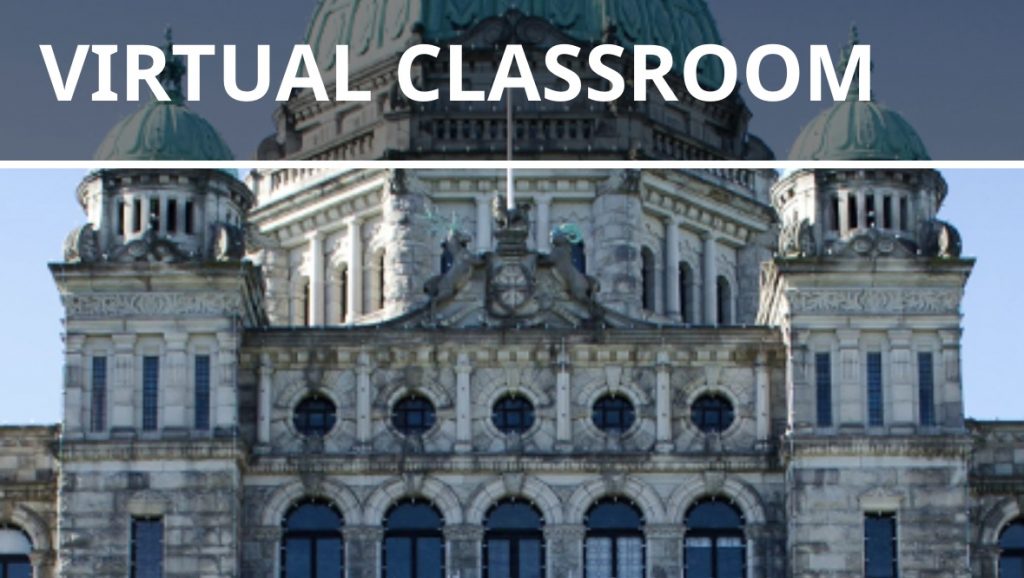Exploring Levels of Government: A Week of Engagement and Learning

This past week, our classroom took a deep dive into the fascinating world of government! The students engaged in a series of three virtual presentations from the Parliament of British Columbia, each designed to illuminate the intricacies of our political system.
The presenters kicked off our learning journey by introducing students to the Legislative Assembly of British Columbia. The presentation included a rich history of the Parliament Buildings, igniting students’ curiosity about the significance of these structures in our democracy.
Next, students explored the Levels of Government. This session provided students with a comprehensive comparison of the roles and responsibilities of Canada’s various levels of government, with a particular focus on provincial responsibilities. Students learned about the distinctions between federal, provincial, and local governments. Students also learned about key positions such as the head of state, the Governor General, and the Lieutenant Governor. They also discovered the important roles played by local Indigenous governments, enhancing their understanding of the diverse political landscape in Canada.
The highlight however was undoubtedly today’s lesson on How a Bill Becomes a Law. This presentation delved into the legislative process, of how laws are made and ammended. The excitement reached a peak during the interactive mock parliament, where students participated in a lively debate on a proposed bill to ban homework. This hands-on activity not only reinforced their understanding of how a bill is presented, discussed, and voted on, but also encouraged them to consider the implications of such a law.
During this mock parliament students took on different roles within the mock parliament, learning about the various positions held by elected officials and the number of seats in the legislature. They discussed the differences between the House and the Senate and how each contributes to the law-making process. This immersive experience fostered critical thinking and collaboration as students articulated their viewpoints, negotiated with peers, and practiced their public speaking skills.
This combination of virtual presentations and interactive activities not only made learning enjoyable but also empowered students with knowledge about the political processes that shape their lives. These lessons also have them excited to learn more about the electoral process and our local candidates ahead of their Student Vote on Friday October 18th.